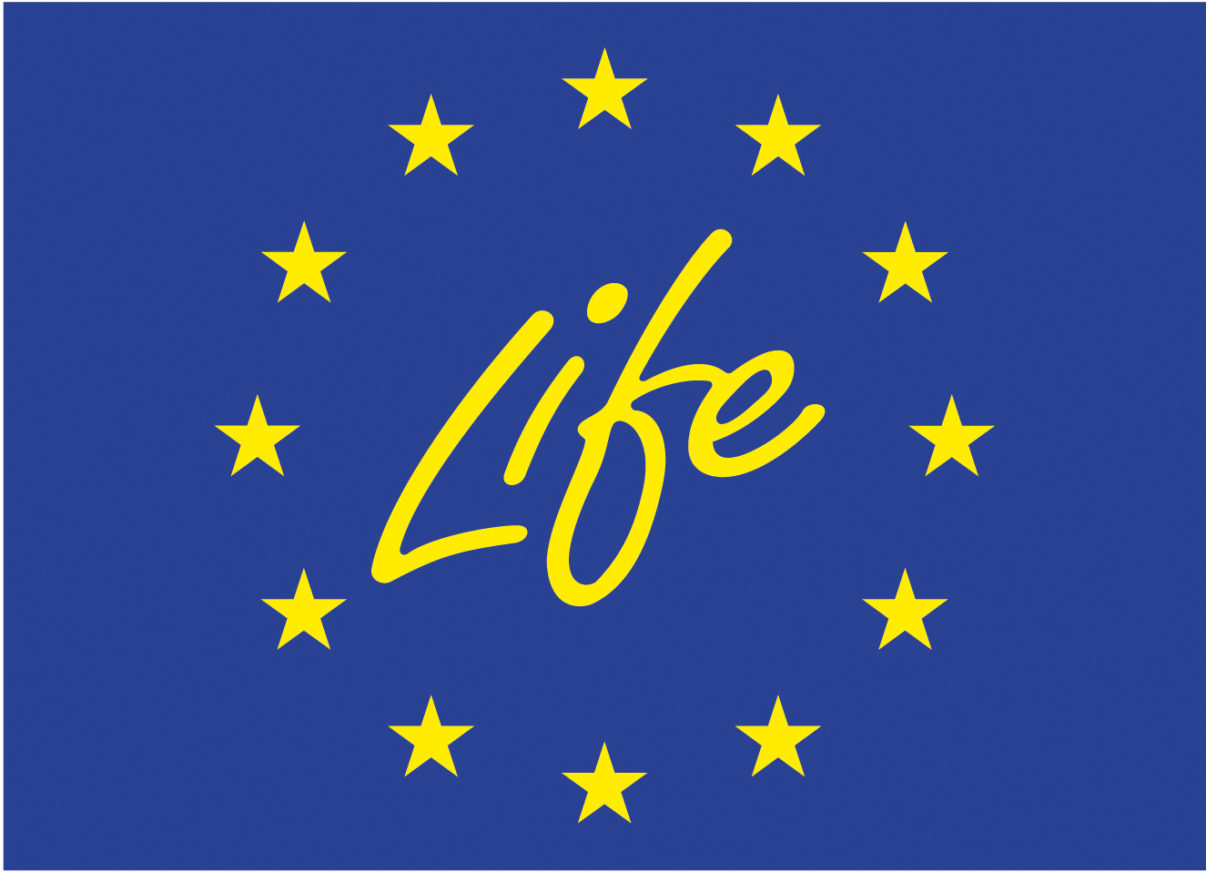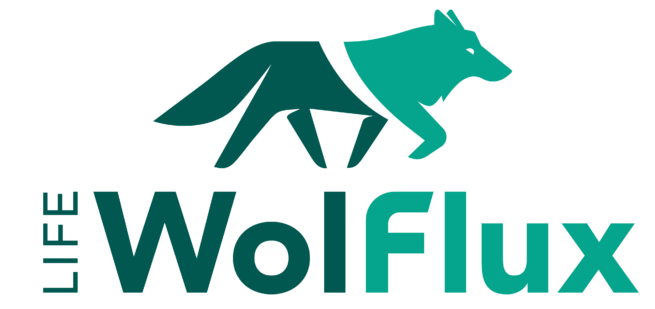Showcasing the rewilding efforts of the Rewilding Portugal team and partners, the documentary “Rewilding: a new path for nature in Portugal” premiered in Lisbon in late November. This blog by the Rewilding Portugal team takes a closer look at the production timeline.
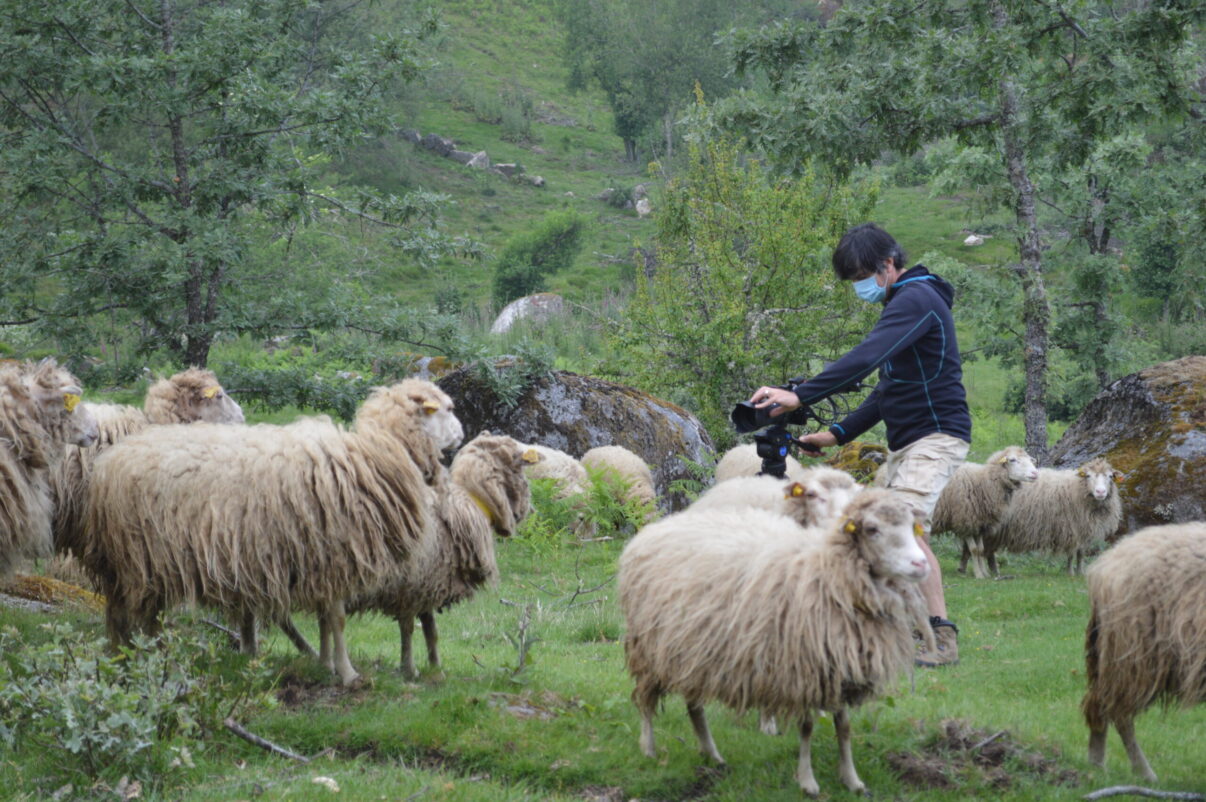
A collaborative effort
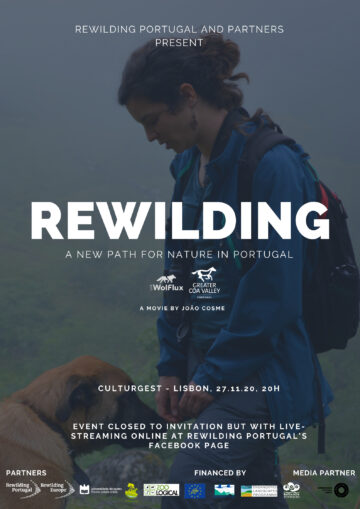
The adventure of producing Rewilding: a new path for nature in Portugal started in the spring of this year, before the Covid-19 pandemic had reached Portugal. The Rewilding Portugal team, responsible for the narration and structure of the documentary, met with Portuguese wildlife filmmaker João Cosme in the town of Guarda. The objective was to outline the narrative of the documentary and work out what needed to be filmed and recorded in the following months. With no idea how the pandemic would restrict Portuguese life, they rolled up their sleeves and went to work in the field, eager to share the team’s rewilding efforts.
The documentary introduces viewers to rewilding efforts in and around the Greater Côa Valley, which began to scale up at the beginning of 2019 and which are being carried out by multiple partners – Rewilding Portugal, Rewilding Europe, ATNatureza, Zoo Logical and the University of Aveiro. It also showcases the rewilding approach in general, which offers a hopeful new conservation narrative for Portugal and a way for nature to recover by itself.
Isolated in nature
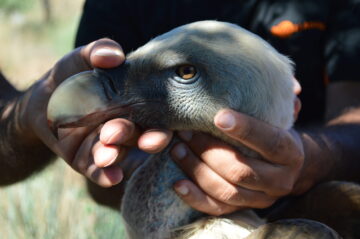
Despite all the pandemic-related restrictions that arrived between late March and early April, filming in the field continued. After all, there is no better way to isolate than to restrict yourself to constant contact with nature, which Covid-19 left untouched. This is how João Cosme spent the following months, getting to know the rewilding area and capturing its magnificent landscapes, fauna and flora.
“I was surprised and captivated by the beauty and biodiversity of the Côa landscapes, which were new to me,” says Cosme.
Different seasons, different weather, different times of the day – the documentary portrays them all. From Aveiro to the Malcata Mountains, along the Douro River to the Côa Valley, João Cosme visited and revisited areas in his quest to capture wild nature in all its drama and beauty. In the end, he managed to record an incredible array of wildlife – from birds, mammals and fish to reptiles and insects, none of them were overlooked.
View to a thrill
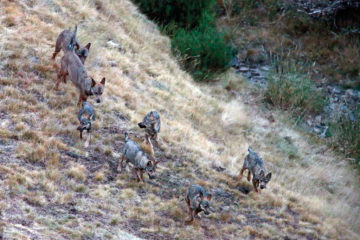
The elusive Iberian wolf was the main actor in the documentary’s message of hope, embodying resilience, adaptability and an ability to overcome challenges.
“My most complicated but exciting subject was undoubtedly the Iberian wolf, which is probably one of the most difficult animals to observe in Portugal,” says Cosme. “I experienced many days of disappointment. But the one time I was less than ten metres away from two animals was an indescribable experience. My adrenaline levels were at their highest and my heart was beating furiously in my chest.”
Authentic moments
The varied efforts of Rewilding Portugal’s various partners were also showcased in this documentary, as well as interviews explaining their vital role in this great journey that is just beginning. João Cosme and Fernando Teixeira, communications officer at Rewilding Portugal, recorded more than a dozen different rewilding actions and conducted seven interviews, which allowed the documentary to present a more personal and authentic message to its audience.
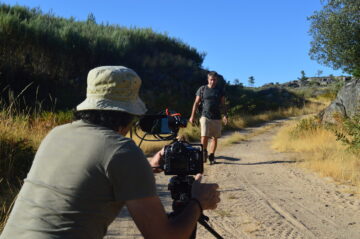
One of the most comical moments of the recording will forever remain in the memory, involving the Zoo Logical canine detection team. Alice, the dog responsible for identifying wolf scat as part of Iberian wolf monitoring, had to show her full range of abilities during the recording. The team hid some scat in a strategic location so that she could discover it on camera, but it was so well hidden that nobody could find it again. But to everyone’s surprise, Alice found a different scat in another location, showing perfectly the real work happening on the ground in a totally unexpected yet realistic way.
By the end of the recording, João Cosme was an even more accomplished professional and pleasantly surprised by what he had seen and heard.
“The rural life of shepherds who encounter wolves, and all the stories they have to tell, was something that fascinated me,” says the filmmaker. “It was good to see that many of these shepherds were aware of the value of conservation because rewilding depends on their cooperation.”
Editing and production
After the recording had finished came the most important stage before the documentary’s premiere: its production and finalisation. João Cosme swapped the field for his computer and the Rewilding Portugal team reviewed the final cut.
The choice for the narration was Célia Gil, a Portuguese professor. While this was her first time narrating, the selection proved to be a good one. Hers was the ideal voice to take the rewilding message to all corners of Portugal and the world. What could have been a long mission lasting well into the night ended up being done in a few hours and without many attempts, except for one paragraph that seemed destined to be repeated forever.
“The documentary itself, its quality, and the magnificent text were a great motivation in my acceptance of the invitation,” says Gil. “In addition, giving voice to things we believe in makes everything easier and it was incredibly exciting to see the final result on the screen.”
A doubly successful premiere
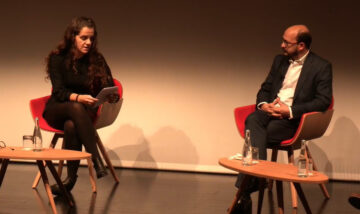
It was finally time to publicly unveil the result of a nine-month job that had been both demanding and pleasurable. The place chosen for the long-awaited premiere was Culturgest’s Small Auditorium, in Lisbon, on the night of November 27. Having taken all necessary precautions and following public health regulations, there was a full room (more than sixty people). The event was also live-streamed on the various social networks of Rewilding Portugal and its official media partners, with more than 4000 viewers watching the screening. The transmission was handled by Bitmood, with multiple cameras recording each moment of the event.
The premiere opened with two speeches – one by Paula Sarmento (of the Rewilding Portugal board) and one by Pedro Prata (Rewilding Portugal team leader). Among the guests of honour was Humberto Delgado Rosa, Director for Natural Capital, DG Environment, of the European Commission.
At the end of the screening, a roundtable event was held with the theme “Policies for the promotion of biodiversity and rewilding as agents for the development of the country and the interior”. This was moderated by Linda Formiga (editor of the Cultura e Arte Community, the media partner of the premiere) and involved Pedro Prata, Carlos Fonseca (a biologist and team leader at the University of Aveiro), Nuno Fazenda (a professor at the University of Aveiro and currently coordinator of the Socialist Party Parliamentary Group at the Commission of Environment, Energy and Planning), and Ana Rainho (Project Manager of APTERN).
Invaluable support
The LIFE WolFlux initiative depicted in the documentary is financed by the LIFE programme of the European Commission and co-financed by the Endangered Landscape Programme. The “Scaling Up Rewilding of the Greater Côa Valley” initiative, which is also showcased, is funded by the Endangered Landscape Programme, which is managed by the Cambridge Conservation Initiative and funded by Arcadia, a charitable fund of Peter Baldwin and Lisbet Rausing.
Both initiatives are coordinated by Rewilding Portugal, in partnership with the University of Aveiro, Rewilding Europe, Zoo Logical and ATNatureza.
Want to know more?

